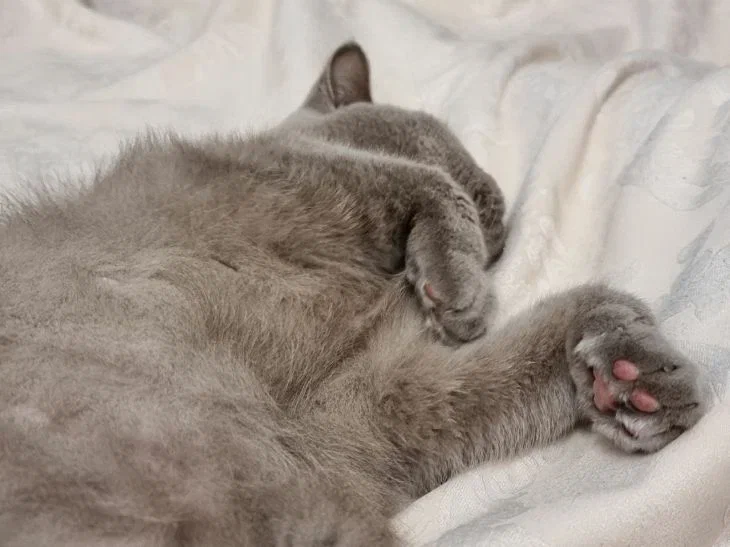Have you ever caught your cat performing a strange ritual where he starts kneading you with his paws, as if he were kneading dough for grandma's pies?
You wonder: “Does he really dream of a career as a baker?” As funny as it may seem, there are secret cat messages hidden behind this gesture, which science is now ready to decipher.
It all starts in childhood. Imagine a tiny kitten, burying its head in its mother cat, rhythmically pressing its paws on her belly, stimulating the flow of milk.

This “milk step” is not just a reflex, but a way to feel connected and safe.
As cats grow older, they carry this gesture into adulthood, as if returning to those carefree days.
But it's not all that innocent. Cats are natural strategists. Their paws contain microscopic glands that secrete pheromones.
Each click is a mark: “Vaska was here.”
This is how they mark “theirs”: your pillow, your blanket, or even you. For them, it’s like signing a painting – an act of ownership. “My person, my territory,” your cat tells the world, turning the sofa into an arena for their secret wars.
It's also a matter of survival. The distant ancestors of domestic cats trampled the grass, creating cozy nests for sleeping or protecting kittens.
Instinct dictates: "Make the place soft and safe." Your blanket, in the cat's opinion, is just a modern analogue of steppe grass.
But sometimes, harmless stomping hides anxiety. If your pet is kneading surfaces more often than usual, as if trying to let off steam, it may be experiencing stress or even pain.
Veterinarians warn: sudden changes in behavior are a reason to check your pet's health.
Of course, there is a romantic version. Purring, forehead butting and gentle nose poking during a massage session is a way of saying, "You are my person."
But don't rush to be touched. Zoopsychologists remind us: cats are masters of manipulation. If the ritual always ends with the ringing of a bowl being filled, your pet is simply training you. "Knead your paws - get food" is a conditioned reflex that works no worse than Pavlov's bell.
What to do? First, don't scold your pet. Trim the claws to save the blanket from turning into a sieve. Second, offer an alternative - a heated blanket or a bed soaked in your scent.
If your cat insists on your lap, enjoy the moment: it's an oxytocin-fueled cat therapy session. But if there's an obsessiveness to his movements, think about it. Maybe he's trying to say something that meowing can't.
